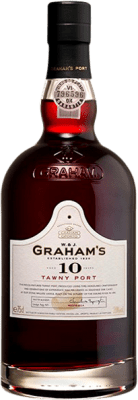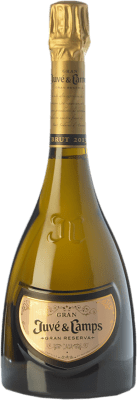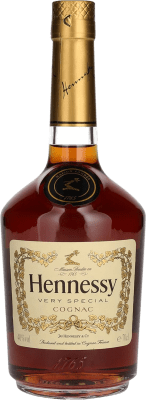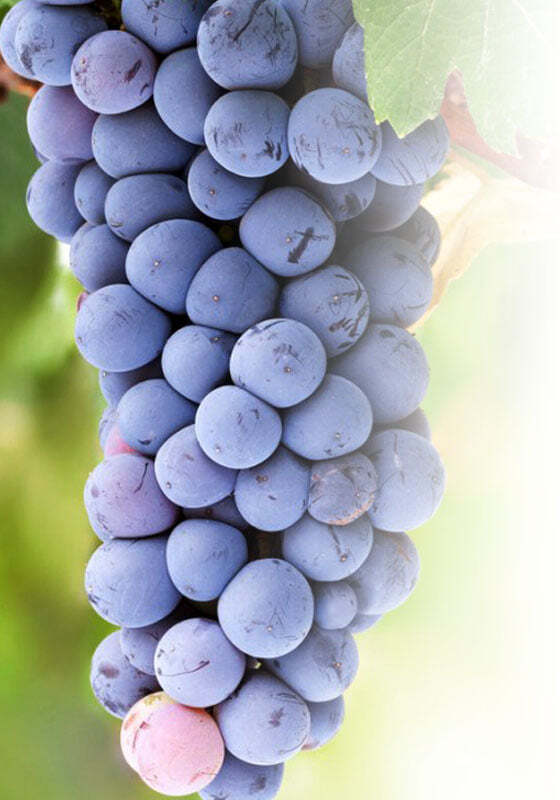Alamos Mendoza Magnum Bottle 1,5 L. Origin.
Producer.
Variety.
![]() Cabernet Sauvignon, Malbec, Bonarda.
Cabernet Sauvignon, Malbec, Bonarda.
Country of origin.
Region of origin.
Appellation of origin.
(UE)401/2010 Certification.
Indicación Geográfica (I.G.)
Indicación de Procedencia (I.P.)
I.G. Mendoza.
Weight.
2.000 gr. (2,0 Kg.).
EAN.
7794450089915
Producer |
|
Variety |
|
Country of origin |
|
Region of origin |
|
Appellation of origin |
|
(UE)401/2010 Certification |
Indicación Geográfica (I.G.) |
Weight |
2.000 gr. (2,0 Kg.). |
EAN |
7794450089915 |
Alamos Mendoza Magnum Bottle 1,5 L. Data sheet.
Typology.
Variety.
![]() Cabernet Sauvignon, Malbec, Bonarda.
Cabernet Sauvignon, Malbec, Bonarda.
Vintage / Harvest.
Format.
Magnum Bottle.
Capacity.
1,5 L.
Alcohol content.
13% Vol.
Weight.
2.000 gr. (2,0 Kg.).
Visual tasting note.
Golden reflections, Of course, Elegant, Violet cherry color.
Olfactory tasting note.
Almonds, Fine cocoa, Very expressive wood.
Tasting note.
Just acidity, Very long finish, Toasted nuances.
Recommended pairing.
Carpaccios, Roast potatos, Chicken With Scampi, Meat roasts.
Consumption temperature.
18ºC.
Consumption.
It is recommended to drink in moderation and demonstrate a responsible consumption of alcoholic beverages.
Special Format.
Magnum Bottle.
Typology |
|
Variety |
|
Vintage / Harvest |
Currently marketed by the producer. |
Format |
Magnum Bottle. |
Capacity |
1,5 L. |
Alcohol content |
13% Vol. |
Weight |
2.000 gr. (2,0 Kg.). |
Visual tasting note |
Golden reflections, Of course, Elegant, Violet cherry color. |
Olfactory tasting note |
Almonds, Fine cocoa, Very expressive wood. |
Tasting note |
Just acidity, Very long finish, Toasted nuances. |
Recommended pairing |
Carpaccios, Roast potatos, Chicken With Scampi, Meat roasts. |
Consumption temperature |
18ºC. |
Consumption |
It is recommended to drink in moderation and demonstrate a responsible consumption of alcoholic beverages. |
Special Format |
Magnum Bottle. |
Alamos Mendoza Magnum Bottle 1,5 L. Description.
Product reference.
WAN4522018
EAN.
7794450089915
Accessories.
This product is provided in the conditions and format in which it is marketed at the current time. In cases where the product includes an additional packaging, box and/or case, These accessories will be included in the shipment as long as they comply with the dimensions of the special packaging adapted and approved for the transport of beverages.
In general, the images of the products that we publish on our website are only relevant for graphic purposes. The images do not show other accessories such as additional packaging (box, case, etc.) or promotional elements that may occasionally be included by the manufacturer along with the product. If you wish, we can inform you about the additional packaging, elements and accessories included with the product at the current time.
Weight.
2.000 gr. (2,0 Kg.).
Actual price.
18,95 € . This product is currently not available.
Storage position.
Lateral position, horizontal bottle.
Storage temperature.
Store at a constant temperature between 10-17ºC.
Humidity should be constant around 60-80%.
Recommendations.
Keep preferably away from light.
Product reference |
WAN4522018 |
EAN |
7794450089915 |
Accessories |
This product is provided in the conditions and format in which it is marketed at the current time. In cases where the product includes an additional packaging, box and/or case, These accessories will be included in the shipment as long as they comply with the dimensions of the special packaging adapted and approved for the transport of beverages. |
Weight |
2.000 gr. (2,0 Kg.). |
Actual price |
18,95 € . This product is currently not available. |
Storage position |
Lateral position, horizontal bottle. |
Storage temperature |
Store at a constant temperature between 10-17ºC. |
Recommendations |
Keep preferably away from light. |
Alamos Mendoza Magnum Bottle 1,5 L. Legal notice.
Please keep in mind.
The information provided and referred to the product features and details has been provided by the expert, manufacturer or producer or published on the official sites. In no case can it be considered as assessment made by our team, unless expressly stated otherwise.
We suggest you to refer to the comments and reviews posted by our customers and users to expand and contrast this information.
Misreading.
Our team provides this information and details in ESPAÑOL language.
If you browse in another language note that the information contained may have been translated from the original language through an automated real-time process that has not been supervised by our human team.
In case of doubt, misunderstanding or misreading about the content of this information you should refer to the original version of this page or contact our customer service team.
Product image.
The product image or its label is only relevant for graphic purposes, so it may not match the identification of the vintage or other features and details of the product for sale. This product is provided in the conditions and format in which it is marketed at the current time.
This product is not identified or supplied in a specific vintage. The product image and label may not match the vintage identification or other characteristics and details of the product for sale.
Accessories.
This product is provided in the conditions and format in which it is marketed at the current time. In cases where the product includes an additional packaging, box and/or case, These accessories will be included in the shipment as long as they comply with the dimensions of the special packaging adapted and approved for the transport of beverages.
In general, the images of the products that we publish on our website are only relevant for graphic purposes. The images do not show other accessories such as additional packaging (box, case, etc.) or promotional elements that may occasionally be included by the manufacturer along with the product. If you wish, we can inform you about the additional packaging, elements and accessories included with the product at the current time.
Country of origin.
Spain. This product is shipped from Spain.
Legal Notice.
It is against the law to sell or supply alcohol to, or to obtain alcohol on behalf of a person under the age of 18 years.
If you are not more than 18 years old, you must leave this website.
Return policy.
Return policy.
Last update: Wednesday, 21 May 2025
For further information: Terms and conditions of the service.
Please keep in mind |
The information provided and referred to the product features and details has been provided by the expert, manufacturer or producer or published on the official sites. In no case can it be considered as assessment made by our team, unless expressly stated otherwise. |
Misreading |
Our team provides this information and details in ESPAÑOL language. |
Product image |
The product image or its label is only relevant for graphic purposes, so it may not match the identification of the vintage or other features and details of the product for sale. This product is provided in the conditions and format in which it is marketed at the current time. |
Accessories |
This product is provided in the conditions and format in which it is marketed at the current time. In cases where the product includes an additional packaging, box and/or case, These accessories will be included in the shipment as long as they comply with the dimensions of the special packaging adapted and approved for the transport of beverages. |
Country of origin |
Spain. This product is shipped from Spain. |
Legal Notice |
It is against the law to sell or supply alcohol to, or to obtain alcohol on behalf of a person under the age of 18 years. |
Return policy |
Return policy. |
No customer reviews at this time. Be the first to post a review!
Alamos Mendoza Magnum Bottle 1,5 L.
Additional information.
«Alamos Mendoza» is produced by Alamos (Bodega Alamos). In the elaboration of «Alamos Mendoza» the grape varieties that are used are Cabernet Sauvignon, Malbec and Bonarda. «Alamos Mendoza» is a product from Argentina. The production region of «Alamos Mendoza» is Mendoza. It is certified with I.G. Mendoza. The weight of «Alamos Mendoza» is 2.000 grams (2,0 Kg.). «Alamos Mendoza» is identified and marketed with the barcode EAN 7794450089915.
«Alamos Mendoza» belongs to the Red wine category, Red wine Appellation of origin I.G. Mendoza. In the elaboration of «Alamos Mendoza» the grape varieties that are used are Cabernet Sauvignon, Malbec and Bonarda. This product is not identified or supplied in a specific vintage. The product image and label may not match the vintage identification or other characteristics and details of the product for sale. If you wish, we can provide you with this information, and, of course, You can request a specific vintage and we will try our best to satisfy you. «Alamos Mendoza» is marketed in magnum bottle 1,5 L format. The alcohol content of «Alamos Mendoza» is 13% Vol. The weight of «Alamos Mendoza» is 2.000 grams (2,0 Kg.). Regarding the tasting of «Alamos Mendoza», the notes golden reflections, of course, elegant and violet cherry color stand out in its visual phase. Among the predominant notes of the olfactory tasting are almonds, fine cocoa and very expressive wood. Finally, The tasting of «Alamos Mendoza» in the taste phase stands out with just acidity, very long finish and toasted nuances. It is recommended to pair «Alamos Mendoza» with carpaccios, roast potatos, chicken with scampi and meat roasts. The optimum temperature to consume «Alamos Mendoza» is 18ºC.
«Alamos Mendoza» is identified and marketed with the barcode EAN 7794450089915. The weight of «Alamos Mendoza» is 2.000 grams (2,0 Kg.). The final sale price of «Alamos Mendoza» is 18,95 € in PrivateCeller.com. Temporarily «Alamos Mendoza» is not available for sale on PrivateCeller.com.
The information provided and referred to the product features and details has been provided by the expert, manufacturer or producer or published on the official sites. In no case can it be considered as assessment made by our team, unless expressly stated otherwise. We suggest you to refer to the comments and reviews posted by our customers and users to expand and contrast this information. The product image or its label is only relevant for graphic purposes, so it may not match the identification of the vintage or other features and details of the product for sale. This product is provided in the conditions and format in which it is marketed at the current time. Spain. This product is shipped from Spain.
Appellation of origin:
I.G. Mendoza.
Alamos Mendoza Magnum Bottle 1,5 L.
 Español [ ES ]
Español [ ES ]Historia.
La historia de Argentina como región productora de vino se remonta al año 1536, cuando el presbítero Juan Cedrón (o quizá Cidrón) plantó en Santiago del Estero las primeras cepas de uva moscatel y "uva país", procedentes de España y a su vez traídas desde la ciudad chilena de La Serena. El propósito del clérigo era utilizar el producto en el ritual católico de la misa. Aproximadamente medio siglo después los franciscanos importaron de Canarias a la provincia de Salta uvas malvasía, el fin de estos misioneros era lograr un vino blanco y suave, asimismo apto para dicho ritual. Así, se obtuvieron variedades de mistela a través de uvas como la vitis rupestris y la vitis labrusca, o bien de las llamadas "uvas chinches," las cuales dan lugar a vinos de sabor áspero y ácido. Asimismo, se debe a los jesuitas y franciscanos la importación temprana de excelentes cepas de vitis vinifera. A fines del siglo XVI las órdenes religiosas introdujeron cepas por el Río de la Plata, llegando a ser hoy la zona interfluvial de Concordia un importante centro productor.
Siguación geográfica.
En el centro oeste del Argentina, al pie de la cordillera de los Andes, Mendoza concentra el 75% del total de los viñedos del país sudamericano y la mayor cantidad de bodegas del país. Esto la convierte en la provincia vitivinícola más importante y uno de los principales centros productores a nivel mundial. La presencia de los Andes, que actúa como barrera a los vientos húmedos del Pacifico, sumado a la distancia al océano Atlántico, modelan el clima generando condiciones ideales para el cultivo de la vid. La altura, el clima continental, la heterogeneidad de suelos y el agua proveniente del deshielo constituyen factores clave para la producción de vinos de excelente calidad, que se suman a una marcada tradición vitivinícola. El territorio de Mendoza puede dividirse en cinco grandes subregiones, que imprimen a las variedades sus características particulares: Valle de Uco, integrado por los departamentos de Tunuyán, Tupungato y San Carlos; la Primera Zona, que comprende los departamentos de Luján de Cuyo y Maipú; y los oasis norte (Lavalle y Las Heras), este (San Martín, Rivadavia, Junín, Santa Rosa y La Paz) y sur (San Rafael, Malargüe y General Alvear), cubriendo prácticamente toda la geografía provincial.
Región vitivinícola.
El alto grado de desarrollo alcanzado por la vitivinicultura, sumado a las nuevas investigaciones impulsadas por una generación de productores inquietos, ha llevado a la identificación de microrregiones con atributos diferenciales de terroir, reflejando el carácter diverso de la vitivinicultura argentina. Es específicamente en el Malbec donde mejor se aprecia esta cualidad. Con el 20% de la superficie total de Malbec plantado en el país, Mendoza es la principal productora, aunque también se destacan la Bonarda, el Cabernet Sauvignon, Syrah y Tempranillo entre sus variedades predominantes. Mendoza es cuantitativa y cualitativamente la provincia más importante en lo que se refiere a producción de vinos argentinos, produciendo el 65% de la producción nacional.
Los vinos.
Si bien las cepas son muchas, dentro de los tintos se destacan los Malbec, Bonarda, Cabernet Sauvignon, Merlot y Syrah. Dentro de los blancos se destacan los Chardonnay, Riesling, Sauvignon Blanc y, muy especialmente el Torrontés. En cuanto al Malbec, es oriundo de Cahors en Francia, y su nombre en argot francés significa mal pico es decir, en lenguaje figurado francés "mal gusto", y esto es por poseer demasiados taninos en su región de origen, sin embargo en Argentina el malbec ha encontrado un terroir que le da un gusto calificado por los expertos enólogos y sommeliers de "amable", caracterizándose por su exquisitez y gustos aromas delicados, lo cual ha hecho que el Malbec argentino se haya convertido en un vino de renombre mundial. Por otra parte, en el ya citado Valle de Uco se producen excelentes vinos espumantes, muchos de ellos pueden mantener el nombre de origen Champagne, ya que son producidos por las mismas empresas bodegueras francesas.
Variety:
Cabernet Sauvignon and Malbec.
Alamos Mendoza Magnum Bottle 1,5 L.
Variety Cabernet Sauvignon.
See Cabernet Sauvignon Red wine list.
 Español [ ES ]
Español [ ES ]Origen.
Hasta hace no demasiado tiempo el origen de esta uva no estaba claro, existiendo muchos mitos y conjeturas. Se hablaba del origen de Sauvignon como derivada del francés sauvage, que significa salvaje, y podría hacer referencia a tratarse de una viña silvestre nativa de Francia. Otra teoría era que la uva tenía orígenes antiguos y que quizás había sido la uva bitúrica, usada para hacer el antiguo vino romano al que hizo referencia Plinio el Viejo. Otra teoría sostiene que la uva se originó en la región española de la Rioja. Los verdaderos orígenes de esta variedad se descubrieron en 1996 al estudiarse genéticamente en el Departamento de Viticultura y Enología la Universidad de California en Davis, con un equipo liderado por Carole Meredith. Estos estudios determinaron que la cabernet Sauvignon fue el resultado de la mezcla de dos tipos de uva en Francia: Cabernet Franc y Sauvignon Blanc, aunque se supone que esta mezcla fue producida siglos anteriores a su nacimiento, alrededor del siglo XVII ya que lo más común en Burdeos era recoger todas las variedades de uva en una sola.
Características.
La clave de su éxito es que se trata de una variedad de fácil cultivo. Por ello, se adapta a una gran variedad de suelos, climas y latitudes. De hecho, desde Francia, la uva se ha extendido por Europa y por América. Es una variedad vigorosa, de brotación medio-tardía, cuyas cepas presentan un pámpano de porte erguido ramificadas, con muchas racimas, de desborre tardío y maduración de media estación.Los racimos son muy pequeños, de forma cónica, compacidad media y con tamaño de bayas muy uniforme que se desprenden con facilidad cuando están maduras. Pedúnculo corto y poco lignificado. Ocasionalmente alados. Las uvas son pequeñas, esféricas, su piel es muy oscura, azulada, con mucha pruina, la pulpa es dura y jugosa, ligeramente pigmentada cuando madura y sin pigmentación en las primeras fases del enverado, cpm sabor herrbáceo intenso y con fuerte sensación astringente. Su hollejo muy grueso. A la cabernet sauvignon se le conoce también por otros nombres como Vidure, Bidure, Burdeos, Carbouet. Es una variedad sensible a la eutipiosis, al mildiu, al oídio, a los cicadelidos y a los acaros. Resiste bastante bien al complejo de hongos de la madera, a la excoriosis y sobre todo a la botritis, así como a la podredumbre. En épocas de sequía intensa su maduración se complica, evolucionando de manera deficiente. Se adapta bastante bien a cualquier tipo de suelo, aunuque los mejores resultados se obtienen en terrenos de grava, sin exceso de agua, algo ácidos y bien expuestos. Es bastantes sensible a la carencia de magnesio, que se asocia a la desecación del raquis de los racimos. Resiste bastante bien los fríos primaverales y los vientos. Apenas se ve afectada por corrimientos de racimo. Despuntes precoces inducen la aparición de muchos hijuelos y abundantes racimas, por lo que su calidad se deteriora. Requiere podas largas y en guyot para su adecuada producción. El rendimiento de esta variedad está comprendido entre 2-14 toneladas por Ha, dependiendo del vigor de la viña.
Zonas de cultivo.
Es una planta de viña de uvas de vino tinto muy extendida en todo el mundo. Actualmente la uva Cabernet Sauvignon se cultiva en Francia, España, Italia, Chile, California, Australia y Argentina principalmente. A nivel mundial, la superficie que ocupa el cabernet sauvignon es de 341,000 Ha. Es la segunda variedad tinta más plantada (2015), después de la variedad china Kyoho (uva de mesa), ocupando la décima posición en el ranking mundial de variedades de vid plantadas. Las superficie de cabernet Sauvignon supone el 4% de la total de viñedos en el mundo.
Vinos.
El estilo de la cabernet sauvignon está muy influenciado por la madurez de las uvas en el momento de la cosecha. Mientras menos maduras están, mayor es su contenido de pirazinas y pueden exhibir sabores pronunciados a pimiento verde y a vegetales. Cuando es cosechada demasiado madura, los vinos pueden tomar sabores amermelados y pueden tener aromas a grosellas negras guisadas. Algunos viticultores escogen cosechan sus uvas en diferentes niveles de madurez para incorporar diferentes elementos y añadirle más complejidad al vino. El prensado de la uva cabernet Sauvignon produce un zumo oscuro, intenso y muy vivo, austero y tánico. Cuando el vino de cabernet sauvignon es joven normalmente exhibe un fuerte sabor a cerezas negras y a ciruela, aromas a grosella, pimineto verde y también en ocasiones notas de menta y aceitunas recién recolectadas o monte bajo y hierbas aromáticas. Posee un hollejo muy grueso del que se extraen muchos taninos dulces lo que permite su largo envejecimiento. Si la madera es suave, da vinos de textura y fineza muy agradables, con aromas a chocolates, a tabaco y en parte a mina de lápiz, pero conservando su característico aroma a grosella y en ocasiones a pimiento. El vino monovarietal puede carecer de suavidad y redondez, por eso se utiliza mucho con coupages con otras variedades como merlot o syrah. Son muy aptos para el envejecimiento, pudiendo elaborarse extraordinarios vinos de guarda.
Red wine Cabernet Sauvignon
Product Selection Red wine Cabernet Sauvignon.
Alamos Mendoza Magnum Bottle 1,5 L.
Variety Malbec.
See Malbec Red wine list.
 Español [ ES ]
Español [ ES ]Origen.
El centro histórico de producción de Malbec fue Cahors, localidad ubicada en el sudoeste de Francia, cerca de los Pirineos. Se encuentra relativamente cerca de una de las principales regiones vitivinícolas de Francia, Burdeos que está 200 km al este. Una tradición sostiene que los romanos introdujeron en Cahors cepas de esta variedad, llevadas desde Italia, a mediados del siglo II. Hay quien sostiene que llegaron de otras zonas de Europa, pero lo que está claro es que allí se cultivó esta variedad. Durante el imperio romano, el vino de Cahors fue apreciado por las élites, lo que queda reflejado en obras de los autores clásicos, sobre todo Horacio y Virgilio. Después de la caída del imperio romano, se produjo el colapso del poder político y las instituciones; pero el vino de Cahors mantuvo su prestigio. En la Alta Edad Media, fue reconocido por el obispo de Verdún. Posteriormente, una destacada mujer de esa región, Leonor de Aquitania, contribuyó a la expansión de los vinos de Cahors, sobre todo en el mercado británico. Los estudios ampelográficos afirman que surge de un cruce entre magdeleine noir de Charentes y la prunelard. La primera es una variedad de uva de mesa muy divulgada en el medievo, mientras que la segunda es una antigua variedad de Gaillac, donde todavía se la puede encontrar.
Características.
Las cepas de uva malbec son de elevado vigor y porte tumbado que necesita más sol y calor que la cabernet sauvignon o la merlot para madurar. Tiene un desborre precoz y madura también temprano o a media estación, razón por la cual se ve afectada tanto por las heladas del invierno como por el frío en primavera, e incluso por las bajas temperaturas en la cierna, que inducen en esta variedad un fuerte corrimiento del racimo. Los racimos son entre pequeños y medianos, muy compactos y con un pedicelo reducido del cual se desprenden las bayas con facilidad. Produce uvas esféricas de gran tamaño, el cual es uniforme a lo largo del racimo y en las que se aprecia muy claramente la cicatriz estilar. Su piel es de color negro, azulada y gruesa y su pulpa, que no presenta pigmentación, es blanda y de jugosidad elevada. Es una variedad muy sensible al mildiu y especialmente a la podredumbre gris. También, aunque en menor medida al oídio, a la excoriosis, a otras enfermedades de la madera y al black-rot. Es muy sensible a los ácaros y menos a la polilla del racimo y a los cicadélidos. Es una variedad exigente en potasa y magnesio, pero debe emplearse poco nitrógeno por su elevadísimo vigor. También es conocida como cot, cahors, pressac, auxerrois, costo rojo, lutkens, quercy, balouzat, jacobina, negro dulce, saint emilion y Cô.
Zonas de cultivo.
En Francia, las plantaciones de esta variedad se encuentran en las inmediaciones de la zona de Cahors, en el centro-sur del país, en la región de Lot. No obstante, la malbec incrementó notablemente su presencia al ser utilizada ampliamente en Argentina, donde fue introducida por el ingeniero agrónomo francés Michel Pouget en 1868. Mendoza es la zona donde la malbec está más extendida, con aproximadamente el 90% malbe de Argentina, aunque también son productoras las regiones de La Rioja, Salta, San Juan, Catamarca, Jujuy, La Pampa, Neuquén, Río Negro y Buenos Aires. Chile también ha demostrado ser capaz de producir Malbec de alta calidad, sobre todo en las regiones de Colchagua y San Antonio. Se pueden encontrar viñedos de malbec en las regiones más frías de California, donde se usa para hacer meritage, en el estado de Washington, en la American Viticultural Area (AVA) Long Island del estado de Nueva York, en las regiones de Rogue y Umpqua de Oregón, en Australia, en Nueva Zelanda, en Sudáfrica, en la Columbia Británica, Tarija al sur de Bolivia, en el noreste de Italia, en Virginia, en la Baja California mexicana y, recientemente, en Texas y en el sur de Ontario.
Vinos.
Los malbec franceses tienden a tener mucha estructura, taninos firmes y mucho color los años secos, mientras que el grano tiende a hincharse dando vinos diluidos los años lluviosos. A diferencia de éstos, los malbec argentinos tienden a ser mucho más afrutados, con taninos maduros y un final aterciopelado. Por lo general, los vinos elaborados con malbec destacan por presentar una fase visual de intenso color oscuro y una nariz frutal que recuerda a las cerezas, fresas o ciruelas, uvas pasas y pimienta negra y en algunos casos con reminiscencias de frutas cocidas (mermelada). Al envejecer en barrica de roble toma notas de café, vainilla y chocolate. En boca se aprecian sus taninos dulces, suaves y envolventes. Refinado, vigoroso y equilibrado, el Malbec da origen a una diversidad de estilos que reflejan su gran potencial. Es el tinto por excelencia para acompañar cualquier plato, desde el tradicional asado argentino o la típica humita a base de maíz del norte del país, hasta platos internacionales como pastas, pizzas, tamales o sushi.
Data sheet.
Alamos Mendoza Magnum Bottle 1,5 L.
Red wine. Alamos. I.G. Mendoza. Mendoza. Argentina. Cabernet Sauvignon, Malbec, Bonarda. Magnum Bottle. 1,5 L..
Variety.
![]() Cabernet Sauvignon, Malbec, Bonarda.
Cabernet Sauvignon, Malbec, Bonarda.
Country of origin.
Region of origin.
Appellation of origin.
Vintage / Harvest.
Format.
Magnum Bottle.
Capacity.
1,5 L.
Alcohol content.
13% Vol.
Visual tasting note.
Golden reflections, Of course, Elegant, Violet cherry color.
Olfactory tasting note.
Almonds, Fine cocoa, Very expressive wood.
Tasting note.
Just acidity, Very long finish, Toasted nuances.
Recommended pairing.
Carpaccios, Roast potatos, Chicken With Scampi, Meat roasts.
Consumption temperature.
18ºC.
Special Format.
Magnum Bottle.
Typology.
Producer.
Weight.
2.000 gr. (2,0 Kg.).
EAN.
7794450089915
Product reference.
WAN4522018
Actual price.
18,95 € . This product is currently not available.
Please keep in mind.
The information provided and referred to the product features and details has been provided by the expert, manufacturer or producer or published on the official sites. In no case can it be considered as assessment made by our team, unless expressly stated otherwise.
We suggest you to refer to the comments and reviews posted by our customers and users to expand and contrast this information.
Misreading.
Our team provides this information and details in ESPAÑOL language.
If you browse in another language note that the information contained may have been translated from the original language through an automated real-time process that has not been supervised by our human team.
In case of doubt, misunderstanding or misreading about the content of this information you should refer to the original version of this page or contact our customer service team.
Product image.
The product image or its label is only relevant for graphic purposes, so it may not match the identification of the vintage or other features and details of the product for sale. This product is provided in the conditions and format in which it is marketed at the current time.
This product is not identified or supplied in a specific vintage. The product image and label may not match the vintage identification or other characteristics and details of the product for sale.
Return policy.
Return policy.
Last update: Wednesday, 21 May 2025
For further information: Terms and conditions of the service.
Country of origin.
Spain. This product is shipped from Spain.
(UE)401/2010 Certification.
Indicación Geográfica (I.G.)
Indicación de Procedencia (I.P.)
I.G. Mendoza.
Storage position.
Lateral position, horizontal bottle.
Storage temperature.
Store at a constant temperature between 10-17ºC.
Humidity should be constant around 60-80%.
Recommendations.
Keep preferably away from light.
Accessories.
This product is provided in the conditions and format in which it is marketed at the current time. In cases where the product includes an additional packaging, box and/or case, These accessories will be included in the shipment as long as they comply with the dimensions of the special packaging adapted and approved for the transport of beverages.
In general, the images of the products that we publish on our website are only relevant for graphic purposes. The images do not show other accessories such as additional packaging (box, case, etc.) or promotional elements that may occasionally be included by the manufacturer along with the product. If you wish, we can inform you about the additional packaging, elements and accessories included with the product at the current time.
Legal Notice.
It is against the law to sell or supply alcohol to, or to obtain alcohol on behalf of a person under the age of 18 years.
If you are not more than 18 years old, you must leave this website.
Consumption.
It is recommended to drink in moderation and demonstrate a responsible consumption of alcoholic beverages.
Variety |
|
Country of origin |
|
Region of origin |
|
Appellation of origin |
|
Vintage / Harvest |
Currently marketed by the producer.
|
Format |
Magnum Bottle. |
Capacity |
1,5 L. |
Alcohol content |
13% Vol. |
Visual tasting note |
Golden reflections, Of course, Elegant, Violet cherry color. |
Olfactory tasting note |
Almonds, Fine cocoa, Very expressive wood. |
Tasting note |
Just acidity, Very long finish, Toasted nuances. |
Recommended pairing |
Carpaccios, Roast potatos, Chicken With Scampi, Meat roasts. |
Consumption temperature |
18ºC. |
Special Format |
Magnum Bottle. |
Typology |
|
Producer |
|
Weight |
2.000 gr. (2,0 Kg.). |
EAN |
7794450089915 |
Product reference |
WAN4522018 |
Actual price |
18,95 € . This product is currently not available. |
Please keep in mind |
The information provided and referred to the product features and details has been provided by the expert, manufacturer or producer or published on the official sites. In no case can it be considered as assessment made by our team, unless expressly stated otherwise. |
Misreading |
Our team provides this information and details in ESPAÑOL language. |
Product image |
The product image or its label is only relevant for graphic purposes, so it may not match the identification of the vintage or other features and details of the product for sale. This product is provided in the conditions and format in which it is marketed at the current time. |
Return policy |
Return policy. |
Country of origin |
Spain. This product is shipped from Spain. |
(UE)401/2010 Certification |
Indicación Geográfica (I.G.) |
Storage position |
Lateral position, horizontal bottle. |
Storage temperature |
Store at a constant temperature between 10-17ºC. |
Recommendations |
Keep preferably away from light. |
Accessories |
This product is provided in the conditions and format in which it is marketed at the current time. In cases where the product includes an additional packaging, box and/or case, These accessories will be included in the shipment as long as they comply with the dimensions of the special packaging adapted and approved for the transport of beverages. |
Legal Notice |
It is against the law to sell or supply alcohol to, or to obtain alcohol on behalf of a person under the age of 18 years. |
Consumption |
It is recommended to drink in moderation and demonstrate a responsible consumption of alcoholic beverages. |

 Red Wines from Spain
Red Wines from Spain Italy
Italy France
France Argentina
Argentina United States
United States Australia
Australia Portugal
Portugal Chile
Chile New Zealand
New Zealand South Africa
South Africa





 Germany
Germany Austria
Austria




 Tokaj-Hegyalja
Tokaj-Hegyalja
















 Français
Français
 Deutsch
Deutsch
 Italiano
Italiano
 Português
Português
 中文
中文
 Русский
Русский
 日本語
日本語
 Belgium
Belgium
 Bulgaria
Bulgaria
 Croatia
Croatia
 Cyprus
Cyprus
 Czech Republic
Czech Republic
 Denmark
Denmark
 Estonia
Estonia
 Finland
Finland
 Greece
Greece
 Ireland
Ireland
 Latvia
Latvia
 Liechtenstein
Liechtenstein
 Lithuania
Lithuania
 Luxembourg
Luxembourg
 Monaco
Monaco
 Netherlands
Netherlands
 Norway
Norway
 Poland
Poland
 Romania
Romania
 San Marino
San Marino
 Slovakia
Slovakia
 Slovenia
Slovenia
 Spain, Balearic Islands
Spain, Balearic Islands
 Spain, Canary Islands
Spain, Canary Islands
 Sweden
Sweden
 Switzerland
Switzerland
 United Kingdom
United Kingdom


 EUR, Final price!
EUR, Final price!











